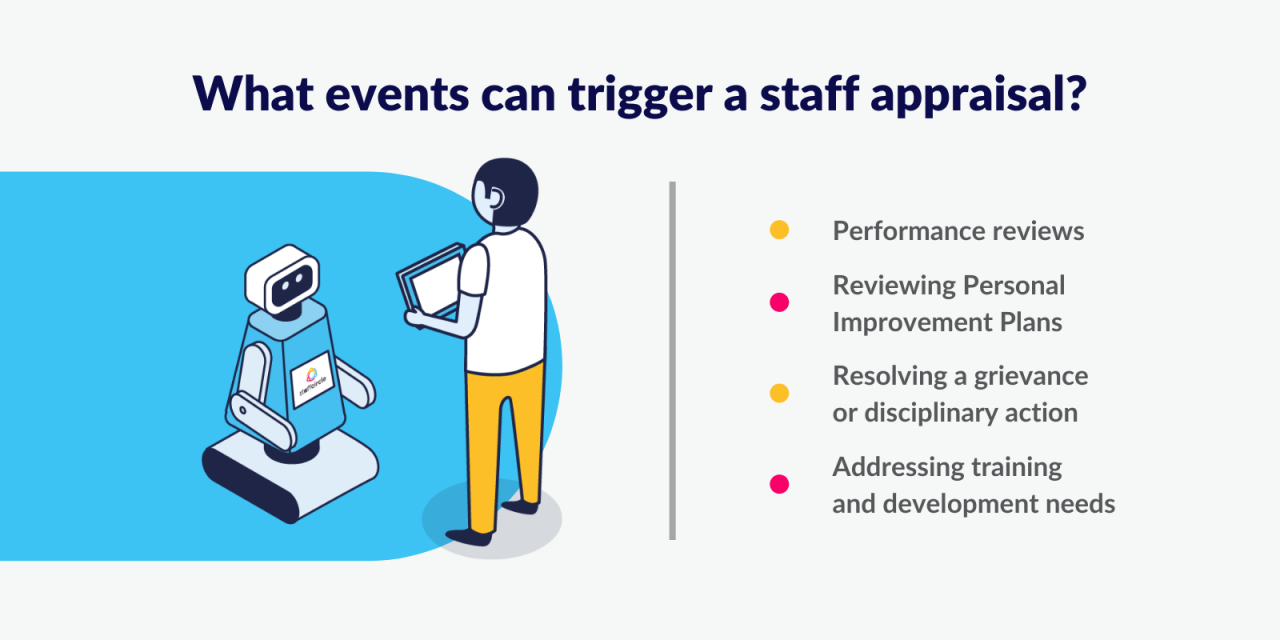Preparation for an Appraisal

How to do an appraisal as a manager – Effective appraisals are crucial for driving performance and professional growth. Preparation is key to ensuring a successful appraisal process. Setting clear goals and objectives is essential to provide a roadmap for employee performance. Performance expectations should be established through discussions between managers and employees, ensuring alignment with the company’s strategic objectives.
Performance appraisals are a crucial tool for managers to assess employee performance and provide feedback. To conduct an effective appraisal, managers should follow a structured process that includes setting clear goals, observing performance, providing regular feedback, and conducting formal reviews.
Similarly, connecting an ad account to a business manager is a crucial step for businesses to manage their advertising campaigns effectively. This guide provides step-by-step instructions on how to connect an ad account to a business manager, ensuring that the advertising campaigns are aligned with the business objectives and performance goals.
Gathering and documenting performance data is also critical, as it provides a basis for evaluating progress and identifying areas for improvement.
As a manager, conducting appraisals effectively requires a deep understanding of cultural nuances. The impact of cross-cultural management on appraisal processes is extensively explored in the Cross-Cultural Management: An International Journal. By considering cultural factors, managers can adapt their appraisal methods to ensure fair and accurate evaluations.
Establishing Performance Expectations
- Define specific, measurable, achievable, relevant, and time-bound (SMART) goals.
- Use a performance agreement to document expectations, responsibilities, and deadlines.
- Communicate expectations clearly and regularly to employees.
Gathering and Documenting Performance Data, How to do an appraisal as a manager
- Use a variety of data sources, such as performance reviews, project evaluations, and customer feedback.
- Document performance observations and incidents throughout the year.
- Keep records of employee accomplishments, successes, and areas for improvement.
Closing Summary
By following the principles Artikeld in this guide, managers can foster a culture of performance excellence, motivate employees, and ultimately enhance the productivity and profitability of their organizations.
Query Resolution: How To Do An Appraisal As A Manager
What is the purpose of an appraisal?
Appraisal involves assessing performance, providing feedback, and setting goals. To effectively conduct an appraisal, managers must establish clear objectives, gather data, and communicate effectively. By understanding the Event Management Body of Knowledge (EMBOK), managers can enhance their appraisal skills. The EMBOK provides a comprehensive framework for event management , including guidelines for setting performance standards, evaluating outcomes, and developing professional growth plans.
Appraisals provide a structured opportunity to assess employee performance, provide feedback, set development goals, and align individual contributions with organizational objectives.
When conducting an appraisal as a manager, it’s crucial to consider the employee’s performance, skills, and potential. However, if you’re tasked with managing an art collection, a different set of criteria comes into play, such as authenticity, value, and preservation.
Understanding how to manage an art collection ( how do you manage an art collection ) can help you better assess an employee’s ability to handle such responsibilities.
How often should appraisals be conducted?
The frequency of appraisals varies depending on the organization and industry, but annual or semi-annual evaluations are common.
What are the key elements of an effective appraisal?
Effective appraisals involve setting clear goals, gathering objective data, providing constructive feedback, establishing development plans, and maintaining confidentiality.
When conducting an appraisal as a manager, it’s crucial to provide clear expectations and feedback to employees. Just as art collection managers assess and value works of art, managers must evaluate employee performance and provide guidance for improvement. By establishing transparent criteria and open communication, managers can foster a culture of growth and accountability within their teams.
To conduct an effective appraisal, managers should consider the employee’s performance, potential, and alignment with company goals. Setting clear expectations, providing regular feedback, and creating a supportive work environment are crucial. Compensation is also an important factor to consider, and the average salary for an H-E-B manager can be found here.
By understanding how to assess performance and market compensation, managers can conduct fair and meaningful appraisals that drive employee growth and engagement.
Effective appraisals require a clear understanding of employee performance. To enhance your appraisal skills, consider leveraging technological solutions like designing an airline management system. Such systems provide data-driven insights, streamlining the appraisal process and enabling you to provide tailored feedback and development plans for each employee.
Appraisals are a critical tool for managers to provide feedback, set goals, and develop their team members. To conduct an effective appraisal, managers should focus on providing specific, actionable feedback that is tailored to each individual’s strengths and areas for improvement.
Management is an art that requires a combination of technical skills and interpersonal abilities. By understanding the principles of management and developing their own unique style, managers can create a positive and productive work environment that fosters employee growth and organizational success.